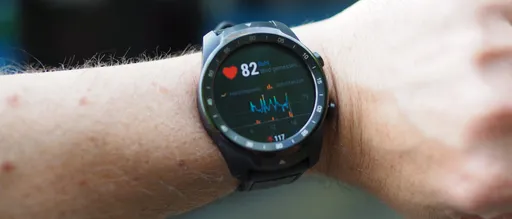“The tree that is beside the running water is fresher and gives more fruit.” ~ Saint Teresa of Avila

A Quick Fix
Most people simply do not get enough water each day and as a result, how they feel suffers as well.
When we fail to drink enough water, we feel sluggish, energy levels decrease, and brain fog can set in.
If you care at all about your day-to-day performance, you’ll understand that feeling sluggish, experiencing brain fog, and low energy will compromise your performance in all areas of your life.
In this article, three main points will be discussed:
- How Does Dehydration Affect Me?
- How Does One Hydrate Properly?
- Who Can I See About Symptoms of Low Energy and Brain Fog?
How Does Dehydration Affect Me?
Most health-conscious individuals are aware that staying well-hydrated is important for the body’s health, but it’s also critical for brain function.
Research has shown that dehydration has several negative neurological and psychological effects, which should be a big reason to make proper hydration a daily priority.
1. Dehydration affects your mood.
Several studies have identified a link between dehydration and mood disturbances.
In a 2012 study, researchers at the University of Connecticut induced dehydration in healthy young women through either exercise or exercise plus a diuretic and assessed the effects their mood states. Dehydration was found to result in a measurable increase in “total mood disturbance.
2. Dehydration reduces your cognitive and motor skills.
We all know not to drive under the influence of alcohol, but according to the findings of a 2015 study conducted at Loughborough University, we should also avoid driving dehydrated.
Volunteers committed a significantly greater number of errors such as lane drifting and late braking in a two-hour driving simulation when they did it dehydrated. In fact, their performance was just as poor as that of people who complete similar tests while at the legal limit for blood alcohol content.
The likely reason is that dehydration reduces concentration and reaction time.
3. Dehydration makes you more sensitive to pain.
One of the more surprising mental effects of dehydration is increased pain sensitivity. This was demonstrated in a 2014 study by Japanese researchers.
Volunteers immersed an arm in cold water to test their pain sensitivity while having their brains scanned and they reported a lower pain threshold (i.e., they felt pain sooner) when they performed this test in a dehydrated state. These subjective reports were accompanied by increased activity in brain areas involved in the experience of pain.
4. Dehydration affects your memory.
Dehydration has also been found to negatively impact memory.
In 2010, researchers at Ohio University measured hydration status in a group of 21 older women and had them complete tests of declarative and working memory.
A strong link between hydration status and memory skills was found, with the most dehydrated subjects performing the poorest on the tests. This effect was partly mediated by blood pressure.
A 2015 study by David Benton and his colleagues found evidence that being dehydrated by just 2% impairs performance in tasks that require attention, psychomotor, and immediate memory and working memory tasks, as well as assessment of the subjective state.
How Does One Hydrate Properly?
Every day you lose water through your breath, perspiration, urine, and bowel movements. For your body to function properly, you must replenish its water supply by consuming beverages and foods that contain water.
So how much fluid does the average, healthy adult living in a temperate climate need? The National Academies of Sciences, Engineering, and Medicine determined that an adequate daily fluid intake is:
- About 15.5 cups (3.7 liters or 125oz) of fluids for men
- About 11.5 cups (2.7 liters or 91oz) of fluids a day for women
These recommendations cover fluids from water, other beverages, and food. About 20% of daily fluid intake usually comes from food and the rest from liquids, which means that in terms of water, this would equate to 100oz of water for men and 73oz for women.
Who Can I See About Hydration Symptoms of Low Energy and Brain Fog?
Tiger Medical Institute has trained professionals who understand these chronic symptoms and the underlying conditions that can contribute to health problems that follow.
If you work with Tiger Medical staff, you will establish an extensive medical data baseline to establish the truth about your health. Research is conclusive. It gives you an advanced understanding of your health and an edge as you pursue elite performance by eliminating chronic stress and its impact on your health and performance.
From this mosaic of health data, Tiger clinicians connect the dots from all testing and imaging to create a personalized medical treatment plan for you.
Tiger clinicians understand the drivers of optimal cellular health and will go to work treating the imbalances limiting your cellular health.
While completing testing and receiving a customized treatment plan, you’ll work with a health coach in consultation with Tiger doctors to help you implement the treatment plan and eight health habits.
The root cause of your health imbalances will be identified in the testing, and a plan to address it successfully will be included in your personalized medical plan and health coaching.
When you make the changes our Tiger doctor and health coach recommends, you’ll find yourself energized by the knowledge you are on the right path to optimal health. You’ll lower stress, feel better, and enjoy all the benefits of greater performance!
What Are My Next Best Steps?
If, based on the information you have reviewed here on our website, you feel Tiger is a good fit to help you lower your stress load, then the next best step is to go here to book a call with a Tiger Professional.
In this first call, the meeting is about learning your history, struggles, and goals. We want to ensure that you are a good fit for our program and that our Tiger team can help you resolve your challenges.
It’s time to make yourself patient number one and embrace self-care.
The first step in that process is to meet with us to learn how!



 8min to read
8min to read
